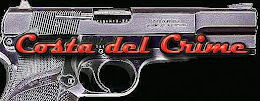Police Arrest ATM Skimmer After $1.5 Million Stolen
US authorities have arrested a man accused of being a lynchpin in a major ATM skimming fraud that stole at least $1.5 million (970,000) from 40 HSBC cash machines in and around New York. The US Attorney's Office published charges against Romanian national Laurentiu Bulat who it alleges acted during 2011 as the "installer" for a gang seeking to steal money from machines in Manhattan, Long Island, and Westchester. The gang installed skimming devices to record account data from the magnetic strip on bank cards as they were used, discovering the PINs using tiny pin-hole cameras. Fake cards were made from the stolen data which was used to remove cash from the accounts. Bulat was arrested on 5 January after being observed by the US Secret Service installing skimming devices at ATMs in Manhattan. "ATM skimmers are high tech bank robbers. Instead of using a gun and a note, skimmers use fake card readers and hidden cameras to steal a customer's information to get to that customer's money and take it. Often it happens completely undetected," said said Manhattan Attorney Preet Bharara. "ATM skimming continues to affect individuals and financial institutions in the New York metropolitan area and around the country," As to others involved in the fraud, police said their investigations were "ongoing." The accused is described as being in the US illegally having overstayed a Visa. If convicted, his stay could be semi-permanent - the maximum jail term is 60 years. Despite having been around since long before Internet fraud stole the headlines, ATM skimming and fraud remains a major problem for banks. The rate of innovation remains high too, and for a simple reason. Although skimming cards is relatively easy, recording the PINs used to verify them is much trickier. An ingenious development from last March showed how criminals had glued down the 'enter', 'cancel' and 'clear' keys on machines in the US in order to force customers to abandon their transactions just after entering PINs. Researchers have even worked out that ATMs could be attacked using thermal imaging to detect small smounts of heat left on keys during PIN entry. The problem has become so serious in Russia that a bank partly owned by the State said it planned to install lie detectors in cash machines in Moscow to double-check on the identities of customers.







